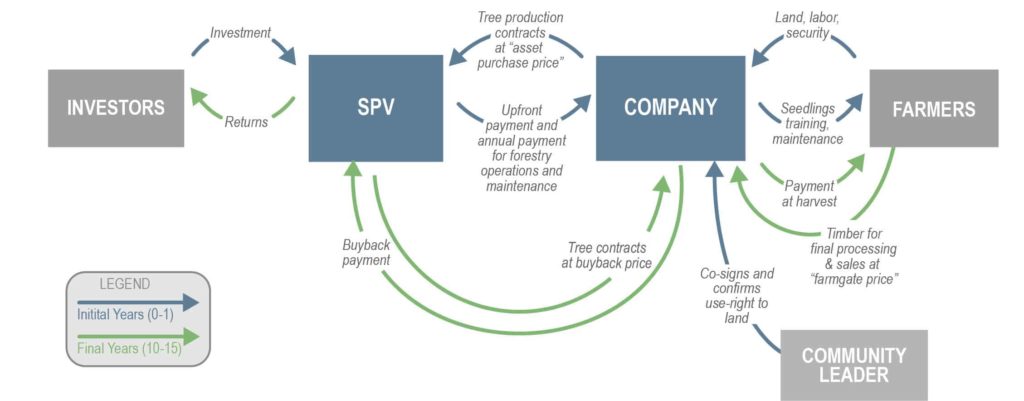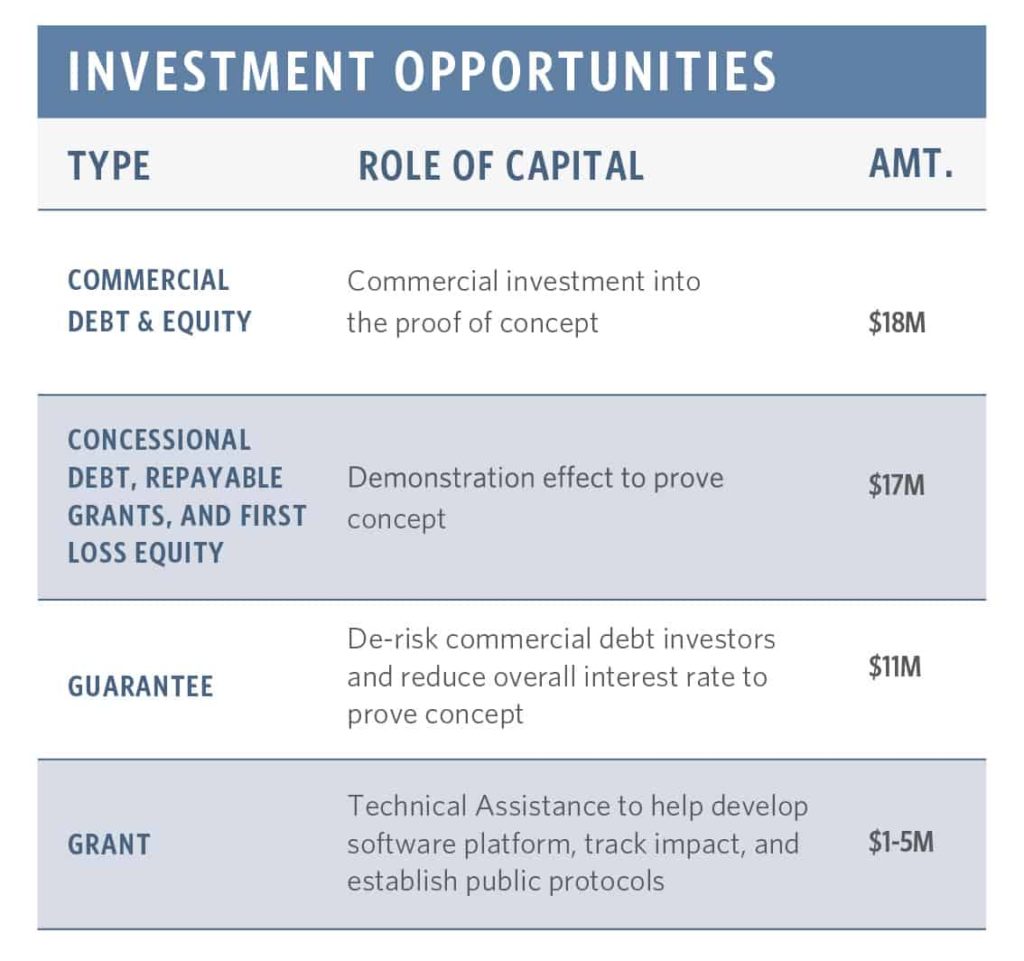In Africa, 65% of land is affected by degradation, reducing the resilience of communities to drought, flood, and other effects of climate change. At the same time, as African economies grow and urbanize, demand for domestic industrial wood products continues to rise, but new forest plantations are difficult and costly to establish.
Smallholder forestry presents a critical opportunity to meet these twin challenges. Smallholder forestry can restore unused, degraded portions of smallholder farming plots. At less than 20% of the cost of traditional plantations, smallholder forestry can also provide climate resilient long-term savings and diversification to farmers.
The Smallholder Forestry Vehicle packages tree production partnership contracts with thousands of smallholder farmers and sells them to investors, providing farmers and forestry companies with access to low-cost, long-term finance while enabling institutional investors to access sustainable forestry investments.
INNOVATION
The Smallholder Forestry Vehicle is the only investment mechanism that enables private investors to invest in smallholder forestry in Africa, while also reducing capital costs for forestry companies that provide technical support and market linkages to smallholders. Specifically, the Vehicle:
fills a crucial gap in Africa, where extremely limited investment is occurring in forestry. It also improves results through a strong cooperation model between an operating company and farmers, and reduces transaction costs for investors and reduces some risks of plantation forestry.
The proof of concept facility will finance the restoration of 5,000 hectares of degraded farmland and provide more than 16,000 farmer households in Kenya with over US$ 1,200 of climate resilient savings.
IMPACT
At scale, each Smallholder Forestry Vehicle could restore 15,000 hectares of degraded land, providing each of 50,000 farming households with US$ 1,500 in climate resilient savings and achieving a modeled 17% gross internal rate of return. Smallholder farmers accumulate wealth similarly to a savings plan, by maintaining trees and receiving payments at thinning and harvest. By providing non-climate dependent income and crop diversification, the partnership thus reinforces farmers’ climate resilience. Beyond the proponent’s own operations, other smallholder forestry projects, such as those run by international organizations, out-grower programs, conservation funds, and NGOs, as well as intermediaries operating in other sectors, such as agriculture, may also raise financing using this approach.
DESIGN

Prior to planting, the Company will work with farmers and their communities to assess land suitability and secure land use rights for tree growing. The land consists of unused, degraded portions of smallholder plots. Once enrolled, farmers contribute land and labor, and are paid a market price for harvested trees. The Company provides training, planting inputs, maintenance support, harvesting services, and a guaranteed market for the trees.
The Company sells a portfolio of tree production contracts to a Special Purpose Vehicle (SPV) after approximately one year of tree growth. The Company will buy back the tree production contracts prior to final harvest. Farmer compensation is set by a transparent algorithm that establishes a minimum compensation price, but rewards farmers for better-than-expected tree growth and market prices.
The Vehicle is under development by Komaza, a smallholder forestry company in Kenya with more than 10 years’ experience in partnering with 14,000 smallholder farmers, over half of whom are female, to plant and harvest 3,800 hectares of trees. The instrument will first be deployed in coastal Kenya in Kilifi and Kwale counties, the site of the Proponent’s current operations and an area of high vulnerability to climate change.


